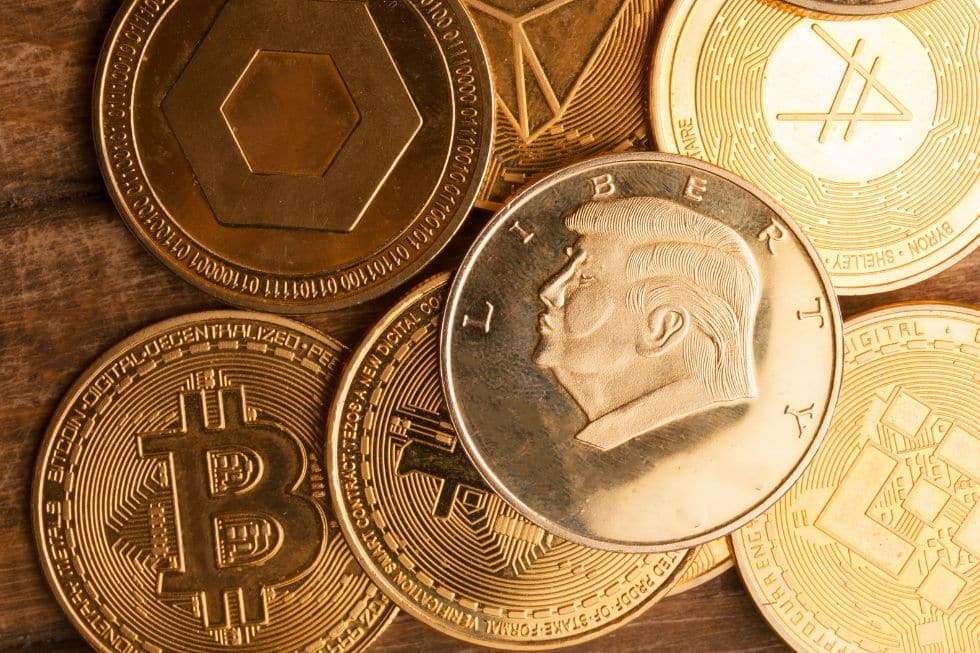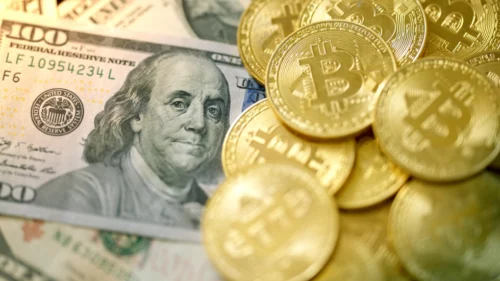When University of Pennsylvania Wharton School marketing professor David Reibstein recently spotted a bitcoin ATM at his local Costco, it struck a chord with his research. A foothold in the discount warehouse retail chain that has some 140 million members is a clear sign of cryptocurrencies gaining mainstream acceptance. The recently published Consumer Cryptocurrency Confidence Report 2024 captures that trend of increasing popularity and expanding use cases, both offline and online. Reibstein co-authored the report with Wharton marketing professors Cait Lamberton and John Zhang, and Martin Paul Fritze of Ludwig Maximilians University of Munich.
“Confidence in crypto continues to grow,” Reibstein said, pointing to what he saw as the main finding of the latest report. “There’s ‘crypto creep,’ with more and more consumers and retailers moving to it.” The researchers introduced the Consumer Cryptocurrency Confidence Index (c3i) in January 2023, and it is tracked every month with consumer surveys. The latest report builds on last year’s report and identifies strong long-term correlations between the c3i and cryptocurrency prices, especially Bitcoin and Ethereum.
Key crypto trackers
The 2024 report showed that confidence in crypto has perceptibly grown since 2023, as evidenced by higher ownership rates and expanding use cases. At last count, a third of all survey participants owned cryptocurrency, and the dominant owners were men and consumers aged 25–44.
According to the survey, a growing number of consumers believed cryptocurrencies are accepted at both online and offline stores. For instance, between January 2023 and December 2024, participants who assumed online stores accept crypto increased from 16% to 25%. The report’s authors anticipate a continued rise in confidence on the mainstream applications of cryptocurrencies.
Nearly half of survey respondents perceived cryptocurrencies as a long-term investment, despite concerns that they are alternative currencies without government backing.
Fueling optimism
US President Donald Trump’s personal investments in crypto are also fueling optimism over rising crypto confidence. His family has a large stake in World Liberty Financial, a crypto exchange that has raised more than $550 million and launched a digital currency called a stablecoin, as the New York Times reported. Another report estimated that his crypto holdings make up nearly 40% of his net worth, or approximately $2.9 billion.
“Trump jumped in to where his followers already were,” Reibstein said. With his investments, he has made crypto “perhaps appealing to a broader audience,” he added. The c3i report showed that more Republicans than Democrats are crypto owners. “Republicans, compared to Democrats, perceive Trump’s election as having a more positive impact on crypto prices,” the report noted.
Over time, Reibstein expected the attraction of cryptocurrencies to extend across the political spectrum. “While the liberals are sitting there saying, ‘It’s not consistent with our underlying beliefs,’ following the money is. And, as you see crypto prices going up, you’ll see more and more people flocking to it.”
Regulatory signals
Reibstein was surprised at the survey finding that conservatives were much more inclined to invest in crypto than Democrats. “They didn’t want the centralized control that we see through banks, and through the government,” he said. In fact, Republicans among the respondents expressed “lower levels of trust in central institutions like the Securities and Exchange Commission or the Federal Reserve,” the report noted.
“While cryptocurrencies are fundamentally built on decentralized principles, our initial findings on the intersection of crypto and politics suggest that consumer confidence may increasingly be shaped by interventions from centralized actors,” the authors wrote in the report. On example of that is the sharp rise in the price of bitcoin after Trump’s election to cross $100,000 in December 2024, following news of a “lighter regulatory approach” in the Trump administration.
“Such developments could, over time, challenge the foundational trust in cryptocurrencies as an alternative system of exchange and value storage,” the report pointed out. Reibstein saw a red flag there: “There is the risk that safeguards being installed against crypto are less likely to occur,” he said. “I think that’s what those investing in crypto want — less regulation. It does add some risk as it continues to grow.” Price volatility has been another big risk factor with cryptocurrencies, but “that has ebbed” in recent times, he noted.
Not the safest investment
A lingering question for Reibstein is whether the general populace perceives crypto as a currency or as an investment. “The future trajectory of crypto markets may move beyond the traditional debate over whether these assets can function as money,” the report stated. “Instead, it may increasingly hinge on consumer belief in cryptocurrencies’ ability to sustain a decentralized and secure system for asset storage and circulation.”
“To a large part, it is sort of a gamble, an investment,” Reibstein noted. For instance, value investors like Warren Buffett have been wary of investing in cryptocurrencies, although he has a small stake in a Brazilian firm with a crypto platform. “Very cautious investors follow the lead of Warren Buffett,” Reibstein continued. “If you wanted to invest in something really, really safe, don’t invest in crypto because it still is in its embryonic stages. It still has more volatility than the euro or the dollar.”
That said, crypto’s popularity has shrugged off its naysayers. “There have been some scandals in cryptocurrency, but they haven’t slowed down the growth [in its popularity],” Reibstein pointed out. “Despite those scandals, it continues its upward trend in both volume, prices and penetration with investors and with merchants. [Looking ahead], penetration is perhaps the most important metric for us to be paying attention to.”
But there will always be a section of the populace that will never accept cryptocurrencies, Reibstein noted. “My parents will never invest in crypto.”
[Knowledge at Wharton first published this piece.]
The views expressed in this article are the author’s own and do not necessarily reflect Fair Observer’s editorial policy.
Support Fair Observer
We rely on your support for our independence, diversity and quality.
For more than 10 years, Fair Observer has been free, fair and independent. No billionaire owns us, no advertisers control us. We are a reader-supported nonprofit. Unlike many other publications, we keep our content free for readers regardless of where they live or whether they can afford to pay. We have no paywalls and no ads.
In the post-truth era of fake news, echo chambers and filter bubbles, we publish a plurality of perspectives from around the world. Anyone can publish with us, but everyone goes through a rigorous editorial process. So, you get fact-checked, well-reasoned content instead of noise.
We publish 3,000+ voices from 90+ countries. We also conduct education and training programs
on subjects ranging from digital media and journalism to writing and critical thinking. This
doesn’t come cheap. Servers, editors, trainers and web developers cost
money.
Please consider supporting us on a regular basis as a recurring donor or a
sustaining member.
Will you support FO’s journalism?
We rely on your support for our independence, diversity and quality.








Comment